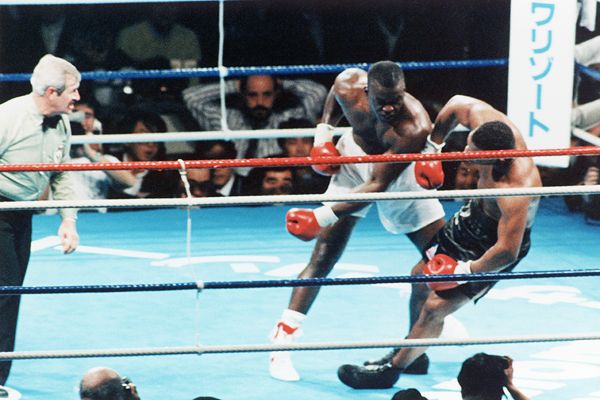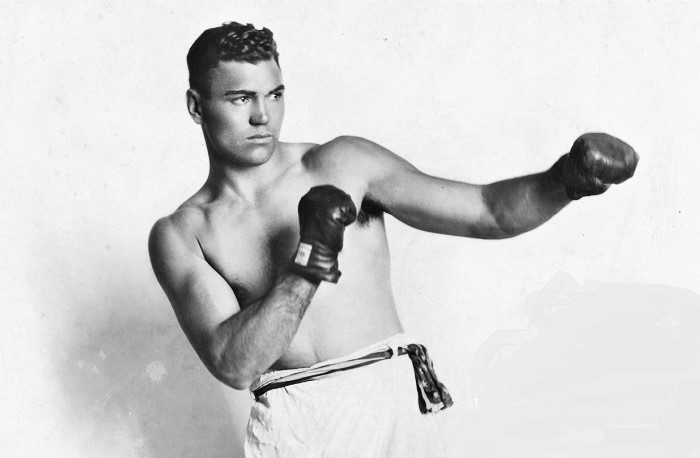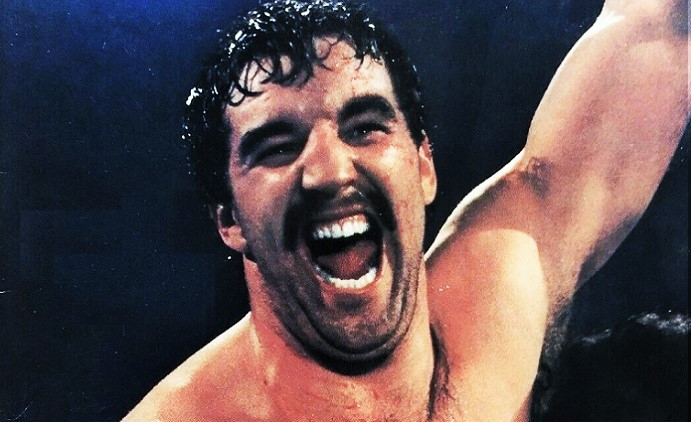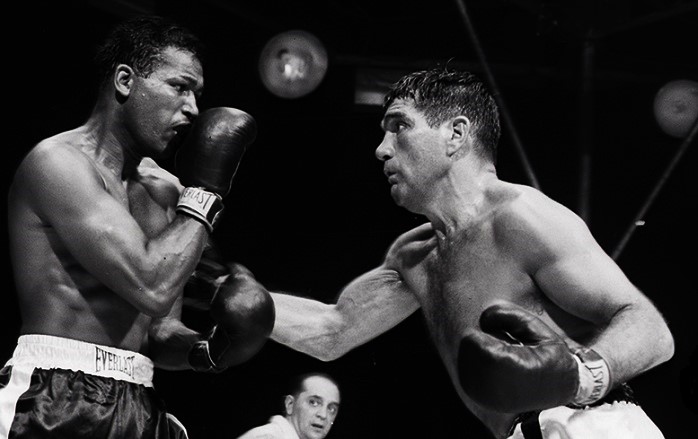Feb. 11, 1990: Douglas vs Tyson
Every serious fight fan is quite familiar with the narrative. In 1990, the undefeated Mike Tyson appeared indomitable and unstoppable, while Buster Douglas was merely a talented but underachieving contender for Mike to destroy on his way to a much bigger fight. This didn’t happen, of course, since a powerful and precise combination in the tenth round snatched Tyson’s title away, and with it, his air of invincibility. Lost in discussions of Douglas vs Tyson is its strange context. Fought at nine in the morning in Tokyo, in front of a reserved Japanese crowd, one of boxing’s most startling dramas ended with an amazing knockout which forever changed the heavyweight division, but it was only the climax to a story whose development was equally fascinating.
Mike Tyson signed for this match thinking the unheralded Douglas would be an easy mark before his pending superfight with Evander Holyfield. With four losses on his record, “Buster” typified the heavyweight contenders of the late 1980s, men such as Greg Page and Tony Tubbs: big, talented, but lacking discipline and drive. Their special gift was to bore audiences with their lethargy and introduce fans to new lows of disappointment.
Buster’s life had been steeped in boxing since childhood as he’d been schooled in the ring by his father, a former professional middleweight. His physical abilities were obvious: he was big, strong, and equipped with arms easily long enough to keep the shorter Tyson at bay. What was questionable was his desire. He had already been stopped twice in his career, and had never shown the relentless will required to become a world champion.
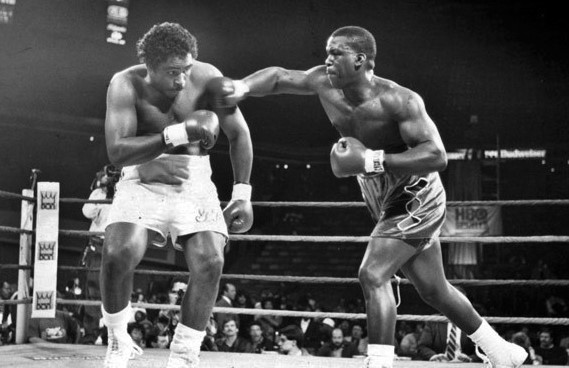
His lone appearance on a large stage had been a shot at the IBF title against Tony Tucker. In a stupor-inducing bout, Douglas himself performed like someone who had just been roused from bed. When the fight was somewhat hastily stopped after Douglas absorbed a series of hard right hands in round ten, he exhibited less disappointment than a man who had just missed his bus. Few thought highly of Douglas’ ability. And absolutely no one thought he had a chance to defeat Tyson.
But unusual and highly emotional circumstances attended the challenger’s preparation for the biggest opportunity of his career, as three weeks before the fight Buster’s mother died. The two were very close, and members of his camp were concerned Douglas would be too grief-stricken and discouraged to continue training. But rather than deflate him, her death had a galvanizing effect; Buster later said that after her passing his training became markedly more intense. Perhaps when confronted with the loss of a parent and the horror of mortality, a mere boxing match with Mike Tyson, who Douglas had already promised his mother he would defeat, wasn’t such a harrowing thought.

If Buster Douglas was focused, fearless, and spurred on by the memory of his mother, Mike Tyson was undisciplined and sloppy. He would later state that he hardly trained for the fight, perhaps to exculpate himself, but it was obvious that his personal life had gone to hell. His marriage to talk show confessor Robin Givens was over, and he had split with longtime trainer Kevin Rooney and managers Jim Jacobs and Bill Cayton. In their place were Don King and a young, inexperienced trainer named Aaron Snowell, who had never even had his own fighter before assuming control of the corner for the most feared athlete in the world. For Tyson, going into business with Don King was like signing his soul over to Mephistopheles, but Mike, unlike Faust, would see only the dark side of his deal with King.
With little self-control and a support system incapable of discouraging his impulses, Mike became even more unrestrained. Snowell said he could be a difficult pupil, and would sometimes refuse to train when required. Tyson, for his part, admitted to a different sort of unruliness. “I was fucking those Japanese girls like it was eating grapes,” he later said, before adding grandiosely, “You thought I was Caesar, you thought I was Caligula when I was out there in Japan.” And in this case, it wouldn’t take a conspiratorial mob or the Praetorian Guard to kill the emperor.
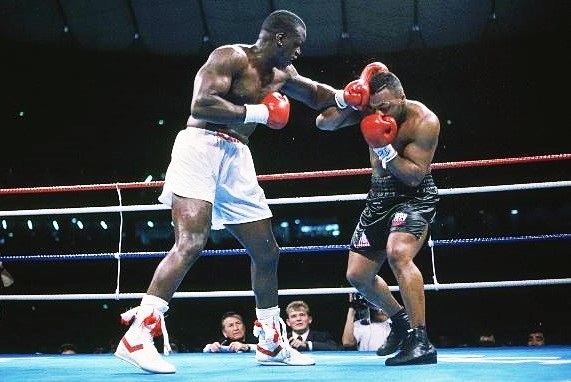
Thus, Douglas vs Tyson was an exhibition of two diverging states of mind: one focused, prepared, and calculating; the other slack and out of sync. Douglas, the sharper of the two boxers from the opening bell, used his hard jab to keep Tyson on the outside and to control the tempo of the fight. By the end of round two it was evident to any close observer that a huge upset was brewing as by that point Tyson had already absorbed more punches than in his last three fights put together. Douglas soon began fearlessly mixing in right hands and uppercuts and successfully smothering Tyson whenever the champion attempted to counterattack.
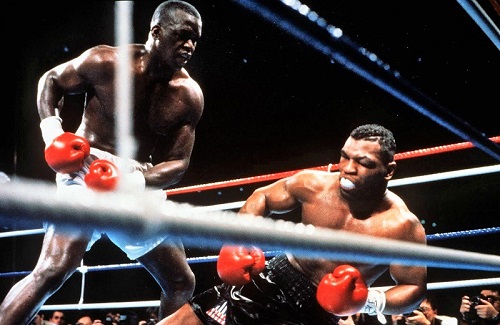
Tyson’s offense couldn’t be thwarted for an entire fight, however, and in the eighth round he dropped Douglas with an uppercut. Buster got to his feet just before the expiration of the count and made it to the end of the round. By this point Mike’s left eye was badly swollen, but his corner didn’t even have a cold press on hand to treat it with. The eighth was followed by a rough ninth in which Tyson tried to capitalize on the knockdown. He couldn’t, and barely survived the round himself after being pasted by a series of hard rights. In the tenth, Douglas caught him with a hellacious uppercut that violently launched Mike’s head back. The subsequent combination floored Mike and the dazed champ could only fumble for his mouthpiece as the referee’s count narrated the final seconds of his championship reign.
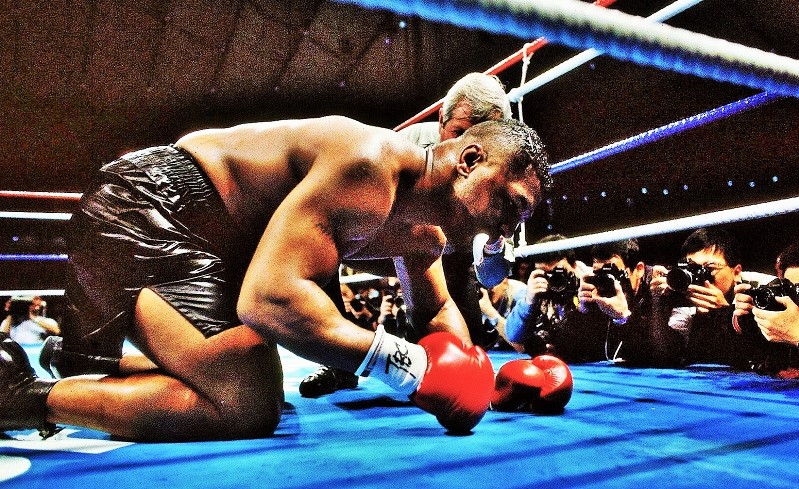
After the fight, Don King cheaply claimed that Tyson’s knockdown in the eighth was actually a knockout, that Douglas had benefited by an overly generous count. This argument was meritless, and Douglas, his life now forever altered, returned to Columbus a heavyweight champion. His reign was brief though, as Evander Holyfield knocked him out with a single right hand to the chin later that year. Mike Tyson fought four more times before being sentenced to prison for the rape of a beauty queen. He reemerged to win the heavyweight title again, but only as an unconvincing imitation of his former self.
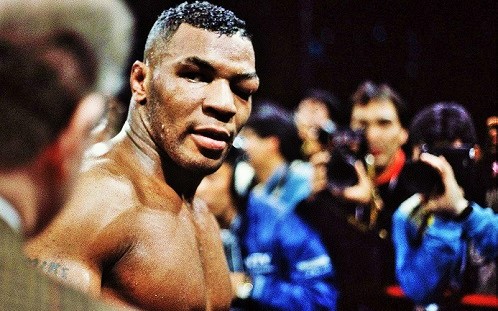
But if “Iron Mike” later proved to be little more than a lucrative myth, an all too human cash-cow impersonating his former self, it was Buster Douglas who had first exposed the fear underneath Mike’s ferocity. “Sometimes the guy just breaks your will,” Tyson later remarked, after having been robbed of his resolve. He would spend the rest of his career pretending he’d gotten it back. — Eliott McCormick

